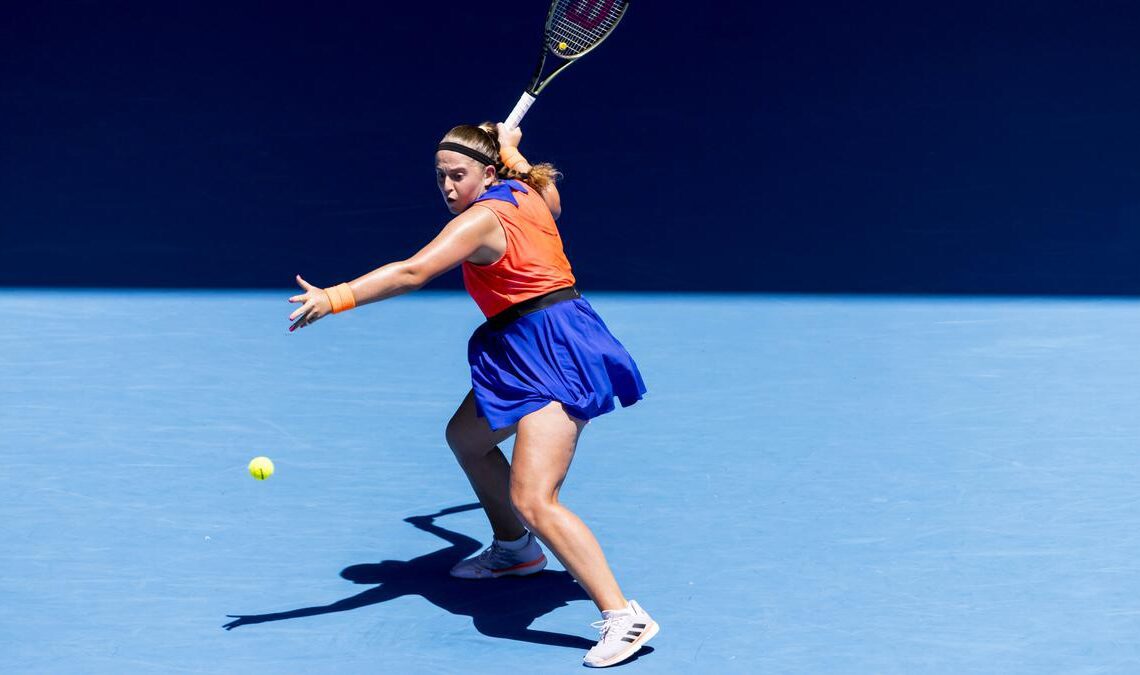When Jelena Ostapenko ruthlessly beat the resistance out of a valiant Simona Halep in the 2017 Roland Garros final, it seemed as if the future of women’s tennis had arrived.
The Latvian’s free-swinging game swept all before her that fortnight, as she became the first unseeded player to win the title since 1933. The breathtaking power and startling fearlessness of her stroke-making reminded many observers of Monica Seles’ breakthrough triumph as a teenager in Paris back in 1990 — a defining moment in the game’s history — with some even prophesying that Ostapenko’s victory marked the birth of another storied career.
Judged by those lofty levels, a quarterfinal run in the Australian Open six years later appears underwhelming. But Ostapenko, who won the French Open two days after turning 20, has struggled to replicate the form and consistency of those heady Parisian days. She was written off as a ‘one-Slam wonder’ for failing to make an impression at the Majors — before Melbourne this year she hadn’t made it past the round-of-16 since Wimbledon in 2018.
Still a contender
But over the last fortnight, Ostapenko showed enough to suggest that she can still be a contender. The 25-year-old emerged from four years in the Grand Slam wilderness and announced her return to the big time with a power-hitting clinic against American seventh seed Coco Gauff in the fourth round. Although beaten by the big-serving Elena Rybakina in the last eight, Ostapenko was often imperious in Melbourne, blasting winners at will.
Ostapenko’s performance against Gauff — someone who might have reminded her of her past, given that the 18-year-old is tipped to have a very successful career — offered a reminder of just why the Latvian remains an opponent no one enjoys facing.
The win — Ostapenko’s first over a top-10 player at a Grand Slam in three years — was powered by the steam of 30 winners. What Gauff said after the match was instructive.
“I think every loss is somewhat in my control because I do feel like I’m a good player, but today she just played better,” said Gauff, runner-up to Iga Swiatek at the French Open last June. “There were moments in the match where I was getting frustrated because I normally can problem-solve but today I feel like I didn’t have many answers. There were balls I was hitting deep and she was hitting them on the line and hitting them back deep, like, over and over again.”
This sense of not being in control, of the…
Click Here to Read the Full Original Article at The Hindu – Tennis…

